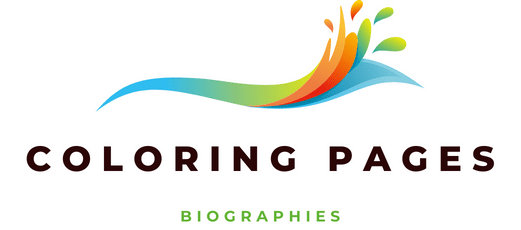In our ever-accelerating world, high-pressure professions have become the norm rather than the exception. The incessant demands of these jobs often lead to heightened stress levels, potentially causing a ripple effect on the physical body, specifically the heart. From hypertension to arrhythmia, the symptoms can be subtle yet harmful. However, a simple practice such as intermittent silent reading could hold the key to managing these stress levels. In this article, we’ll delve into the interconnection of stress, heart health, high blood pressure, and the potential benefits of silent reading.
The Interplay of High Stress and Heart Health
Let’s begin by understanding the intricate correlation between prolonged stress and heart health. When you’re under constant stress, your body responds by releasing stress hormones like adrenaline and cortisol. These hormones cause your heart rate to speed up and blood pressure to rise. In the short term, this is part of the body’s normal response to stress. However, when stress becomes chronic, it exposes the heart to persistently high levels of these hormones, which can seriously impact heart health.
In parallel : What Role Does Magnesium Play in Preventing Migraine Attacks?
High blood pressure or hypertension is one of the most common consequences of prolonged stress. It exerts added force against the walls of your arteries, causing them to work harder than they normally would. Over time, this can lead to an enlarged heart, a precursor to heart failure.
Arrhythmia, another heart condition, can also be influenced by high levels of stress. This refers to an abnormal heart rhythm which may manifest as a too slow, too fast, or irregular heartbeat. While some types of arrhythmia are harmless, others can be life-threatening, especially when left untreated.
In the same genre : How Can Music-Induced Flow States Boost Productivity and Reduce Work Stress?
Recognizing the Symptoms of Stress-Induced Heart Conditions
Recognizing the signs is the first step towards intervention. Some symptoms may be subtle and easily confused with general fatigue or other health issues. This is why it’s crucial to be aware of what might indicate a more serious problem.
High blood pressure often doesn’t manifest visible symptoms. That is why it’s often referred to as the "silent killer". However, when blood pressure reaches dangerously high levels, it may cause headaches, shortness of breath, or nosebleeds.
Arrhythmia also can be hard to detect, as some people may not experience any symptoms. In others, symptoms might be intermittent. Common signs include palpitations, shortness of breath, chest pain, fainting or near fainting, and lightheadedness.
Silent Reading: An Unexpected Treatment Option
The hustle and bustle of a high-pressure job can sometimes make it impossible to carve out time for stress management practices. That’s where the beauty of silent reading comes in. All it requires is a book and a few quiet moments.
Research has shown that reading silently can have a multitude of health benefits, including a significant decrease in heart rate and blood pressure. The mental stimulation that comes with reading can help lower stress and anxiety levels, promoting a state of peace and relaxation.
Reading can also improve sleep quality, a crucial aspect of maintaining normal blood pressure levels and heart health. By incorporating silent reading into your bedtime routine, you’re giving your body the chance to wind down and transition into a restful state, which can improve the overall quality of sleep.
So, how does this work? Reading silently requires a level of concentration that distracts the mind from daily stressors. This leads to a form of relaxation that is akin to meditation, thereby reducing stress and anxiety levels.
The Role of Silent Reading in a High-Pressure Professional Life
Incorporating silent reading into a high-pressure professional life can seem like a daunting task. But remember, the goal isn’t to add another item to your to-do list, but rather to create pockets of calm in your day.
Start by setting aside a specific time each day for reading. This could be first thing in the morning, during your lunch break, or before bed. The key is consistency. Aim for at least 15 to 20 minutes of uninterrupted reading time. This is enough to help your body shift into a more relaxed state, even amidst a hectic work environment.
Creating a peaceful reading environment is also important. Find a quiet space, away from noise and distractions. This will help create a serene atmosphere that encourages relaxation and focus.
Remember, the goal of intermittent silent reading is to reduce stress, not add to it. Choose reading materials that you enjoy. This will not only make the practice more enjoyable, but it can also increase the stress-relieving benefits.
In a world where high-pressure professions are the norm, understanding how to manage stress is paramount. With the simple practice of intermittent silent reading, you can reduce your stress level, improve your heart health, and find some tranquility amidst the chaos. It’s a small change that could make a big difference in your overall health and well-being.
How Noise Exposure and Social Anxiety Influence Blood Pressure in High-Pressure Professions
In high-pressure professions, exposure to prolonged periods of noise and the inherent factor of social anxiety can exacerbate the levels of stress, leading to labile hypertension – a condition where blood pressure levels fluctuate wildly. High noise levels in the workplace can cause the nervous system to release more of the stress hormones that increase blood pressure. Over time, this can adversely affect the heart muscle and contribute to heart disease.
Simultaneously, the social anxiety that often accompanies high-pressure professions can trigger the body’s fight-or-flight response. This response releases adrenaline, causing the heart rate to increase, thereby elevating blood pressure levels.
Understanding the impact of these factors is crucial in managing the potential health risks associated with high-pressure professions. Therefore, incorporating activities like intermittent silent reading, which can significantly lower both blood pressure and heart rate, can prove beneficial as a counteractive measure.
Long-term Benefits of Silent Reading on Mental Health and Chronic Stress
The long-term benefits of silent reading extend beyond just physical health. Regular silent reading can significantly improve mental health by reducing chronic stress levels. The process of concentrating on a narrative allows the mind to shift its focus from stressors, providing a much-needed break for the nervous system.
By engaging the mind in a different activity, silent reading can effectively disrupt the cycle of stress and anxiety that is common in high-pressure professions. Moreover, reading can improve cognitive function and enhance empathy, ultimately contributing to a more balanced emotional state and better interpersonal relationships.
Additionally, silent reading can help regulate blood sugar levels. High functioning stress can trigger the release of glucose into the bloodstream, leading to increased blood sugar levels. By reducing stress, silent reading can help maintain more stable blood sugar levels, further contributing to overall health.
Conclusion: Embracing Silent Reading to Mitigate the Impact of High Pressure Professions
In summary, high-pressure professions often come with a high-stress environment, leading to conditions like hypertension and arrhythmia, which can cause serious heart health issues. Noise exposure and social anxiety common in these professions can exacerbate stress levels, leading to labile hypertension and potential heart disease.
However, the practice of intermittent silent reading offers an effective solution. By requiring concentration and offering a mental escape, silent reading can help reduce stress, lower blood pressure, regulate heart rhythm, maintain blood sugar levels, and improve mental health.
In this fast-paced world, it’s essential to have strategies in place to manage chronic stress. Incorporating silent reading into daily routines can provide a respite from the demands of high-pressure professions and contribute to overall well-being. Silent reading might just be the unexpected hero in the fight against work-related stress and its impact on heart health.











